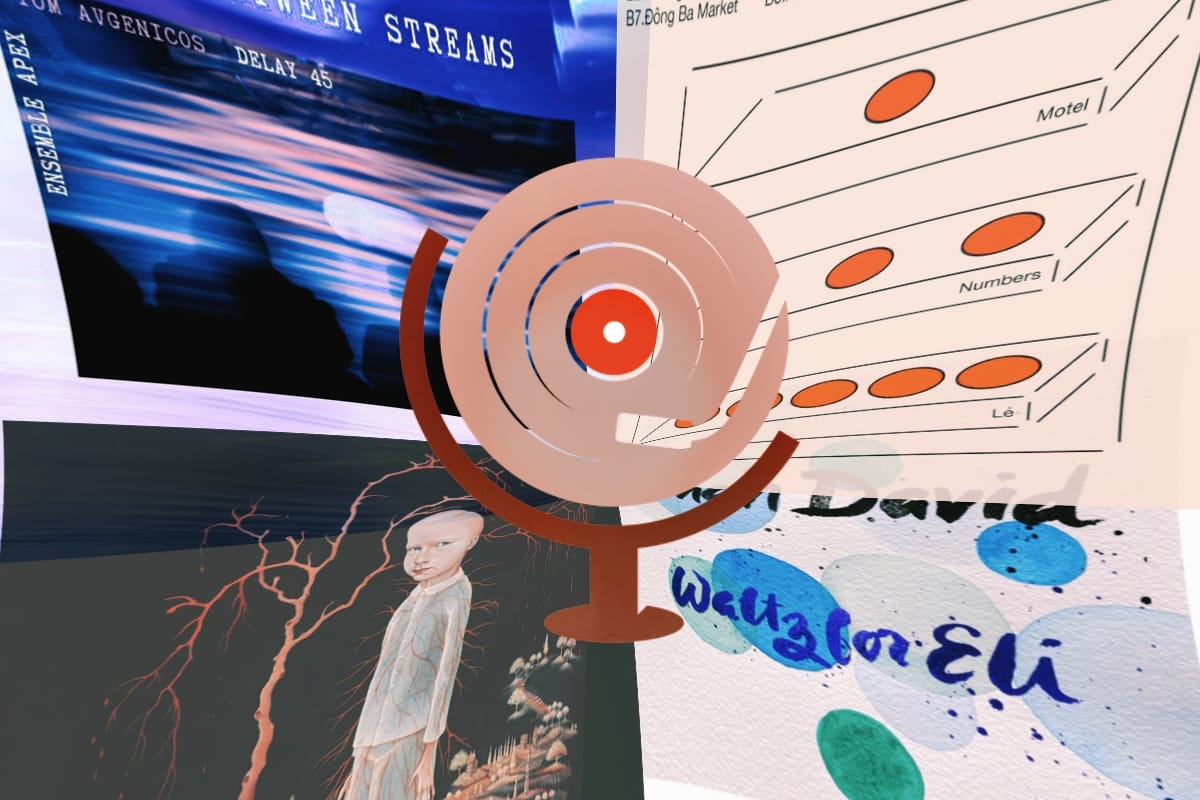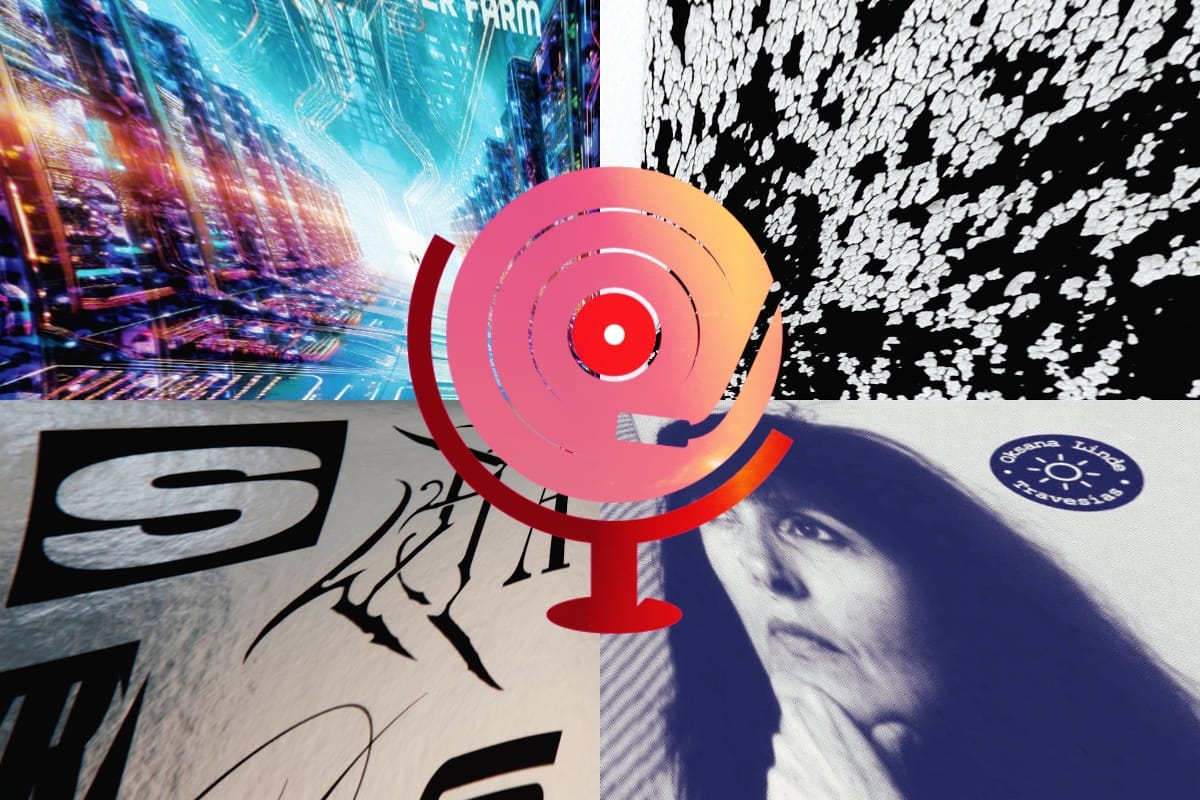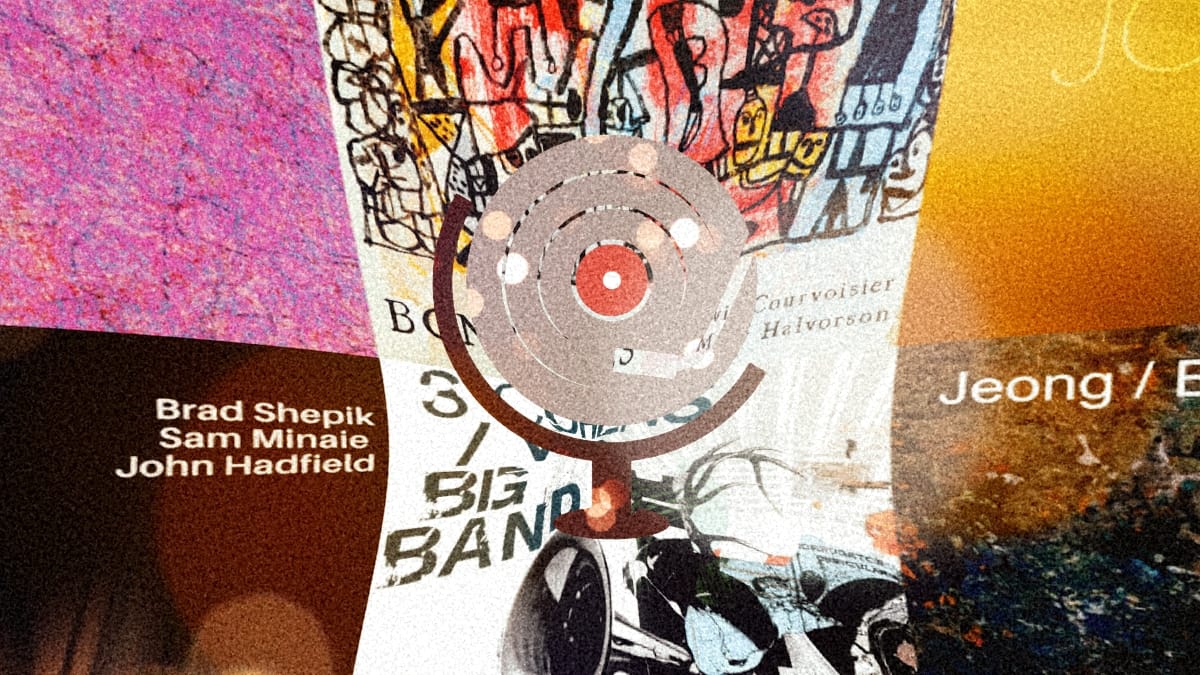As a co-founder of The Tonearm and host of Spotlight On, I get to (heck, I am required to) listen to so much new music. It is the best part of the gig.
The second best part is getting to be your guide to what I view as some of the most essential new recordings and sharing a little insight into what captivated me about each one and what, in turn, makes them worthy of your attention.
You will be hearing more from many of these artists here and on our podcast very soon.
3 Cohens / WDR Big Band - Interaction

Interaction showcases the Cohen siblings Anat (clarinet), Avishai (trumpet), and Yuval (soprano saxophone) collaborating with Germany's WDR Big Band, a Köln-based ensemble that has been performing jazz on West German Radio since 1957.
Recorded in Köln, the album features compositions from each Cohen and Oded Lev-Ari, a longtime collaborator and producer, who serves as conductor and arranger for the release. Also included are fresh interpretations of Gerry Mulligan's "Festive Minor" and "Tiger Rag," a jazz standard from the early 1900s made famous by Louis Armstrong (appearing as a family favorite of the Cohens).
The music highlights the trio's intuitive musical rapport formed during their Tel Aviv upbringing, with their instrumental making a cohesive family sound. The siblings' natural chemistry remains potent despite their separate successful careers: Anat with her Brazilian collaborations and Tentet projects, Avishai with his ECM recordings, and Yuval through his work as an educator in Israel. This record is a high-fidelity history lesson in 100 years of jazz.
Believers - Hard Believer

Hard Believer, on Minneapolis-based Shifting Paradigm Records, is the second album from the trio Believers. The eight-track collection brings together guitarist Brad Shepik, bassist Sam Minaie, and percussionist John Hadfield in a work that blends jazz, rock, and blues with influences from Balkan, South Indian, and Armenian traditions. Each musician contributes distinct expertise: Shepik, with his background working alongside Paul Motian and Carla Bley; Iranian-American Minaie, handling both bass duties and the album's production; and Hadfield, whose percussion skills have taken him from Missouri to collaborations with the Saturday Night Live Band and Silk Road Ensemble.
The compositional styles are varied. The haunting "Corduroy," composed by Minaie, creates a mood of contemplative optimism through measured pacing and textural depth. "Falling Grace," a Steve Swallow composition, features the trio navigating a challenging 9/8 time signature with its circular harmonic structure. What distinguishes this recording is its varied production approach, with sonic treatments ranging from natural acoustic textures to bold electronic manipulations. The album benefits from the musicians' remarkable rhythmic synchronicity, creating a framework where precision paradoxically enables freedom to explore and manipulate time without constraints.
Eunhye Jeong - Michael Bisio Duo with Joe McPhee and Jay Rosen - Morning Bells Whistle Bright

Morning Bells Whistle Bright showcases pianist Eunhye Jeong and bassist Michael Bisio, with saxophonist Joe McPhee and drummer Jay Rosen adding to several tracks. This album of Jeong's compositions draws from Korean traditional music influences alongside Thelonious Monk's approaches to harmony and rhythm.
The ten-track collection includes standouts like "Point Expands to World," establishing the album's experimental, accessible character through its mysterious opening passages. Jeong's piano technique combines percussive elements with spacious melodic development, creating music that evokes what she describes as a reconnection with "ancient wisdom."
The music thrives on the interplay between Jeong's exploratory piano work and Bisio's responsive bass lines. McPhee's tenor saxophone, featured on tracks like "Drinking Galactic Water" and the title composition, adds emotional intensity with his distinctive tone, while Rosen's nuanced drumming provides structural foundation throughout the latter half of the album. The compositions extend the piano-bass dialog format beyond conventional jazz expressions but maintain an accessibility for ears unaccustomed to free improvisation.
Claire Cope - Every Journey

British composer and pianist Claire Cope's Every Journey showcases her Ensemble C's growth from a septet to an 11-piece group, with the album drawing spiritual and thematic inspiration from women explorers documented in Jacki Hill-Murphy's books Adventuresses and The Extraordinary Tale of Kate Marsden. Vocalist Brigitte Beraha plays a central role, contributing lyrics to "The Birch and the Larch" based on a fable from Hill-Murphy's work.
The compositions honor historical figures such as Bessie Coleman, the first African American and Native American woman to earn a pilot's license in the US, and Isabel Godin des Odonais, who traversed the Amazon River. The musical influences range from Maria Schneider's compositions, early Pat Metheny Group recordings, and Michael Brecker's 2004 Quindectet album Wide Angles. I am particularly gassed by the voice-as-intrument work, with the track "Flight" a standout. Check out the heavy instrumental breakdown in the last two minutes of that one.
Sylvie Courvoisier and Mary Halvorson - Bone Bells

Bone Bells is the third collaborative album from pianist Sylvie Courvoisier and guitarist Mary Halvorson, again combining their individual musical voices into unified compositions.
Courvoisier is known for her work in chamber music and avant-garde jazz and brings percussive prepared piano techniques alongside Halvorson's approach to jazz guitar, creating music that moves between elegant structures and eruptive improvisations. The album features eight tracks split evenly between the two composers, including the mournful title track, the tempestuous "Esmeralda," named after a Dutch sculpture, and "Silly Walk," which I would guess takes inspiration from a classic Monty Python sketch.
The duo's musical partnership showcases their complementary sensibilities, with Courvoisier's European classical background working with Halvorson's experimental jazz innovations. Named after a phrase from Hernan Diaz's novel Trust, the album demonstrates the musicians' instinctive decision-making process, including spontaneous sonic interactions and the integration of piano preparations and guitar effects. The recording follows their previous collaborations, Crop Circles (2017) and Searching for the Disappeared Hour (2021), further refining their special piano-guitar interplay.
Quatuor Bozzini - Jürg Frey: String Quartets

Quatuor Bozzini's reissue of Jürg Frey: String Quartets commemorates the quartet's 25th anniversary and features five works documenting Frey's compositional development from 1988 to 2000. The album's centerpiece, the 29-minute "Streichquartett 2," uses a fingering technique called half-tone harmonics that blurs pitch and timbre, creating an ethereal sound that hovers at the threshold of audibility. The hypnotic nature of this music has stopped me in my tracks, pulling me in closer with each listen.
Swiss composer Frey's approach draws from visual artist Agnes Martin, whose work Frey encountered while composing his first quartet in 1988. As he explains in the liner notes, "There was a kind of visibility to her art, which I felt corresponded to the audibility in my music." This connection between sensory experience and minimal expression runs throughout the album, from the restrained chromaticism of "Streichquartett" to the almost monophonic unfolding of "(Unbetitelt) VI" and the brief, delicate sketches of "Zwei allerletzte Sächelchen" (which should not be listened to while operating heavy equipment).
The Bozzini's precise execution amplifies the music's mesmerizing qualities, highlighting why they've become one of contemporary music's most significant ensembles, having premiered approximately 500 works across diverse compositional approaches.
Check out more of our recommendations:











Comments